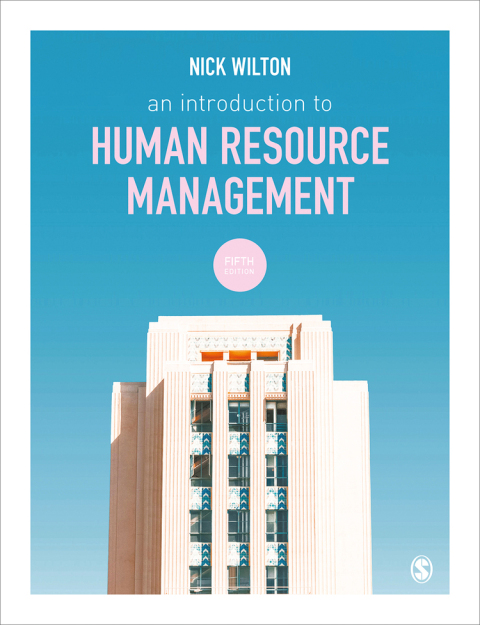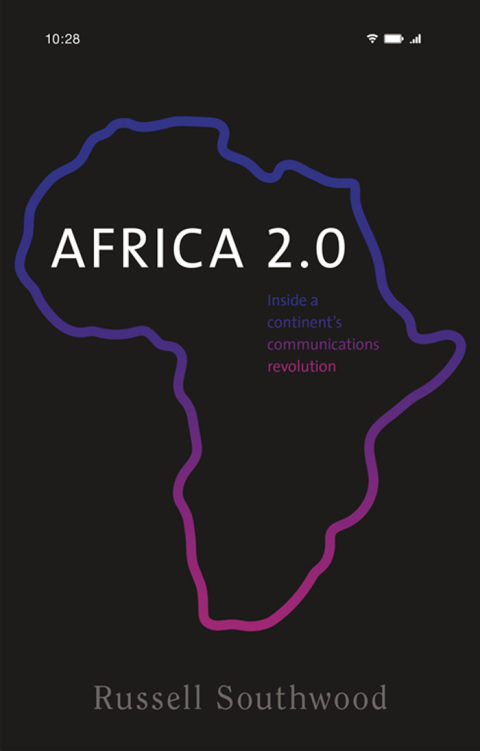Description
Efnisyfirlit
- Cover Page
- Title Page
- Copyright Page
- Contents
- List of Tables and Figures
- List of Mini Case Studies
- Author Biography
- Guided Tour
- Acknowledgements
- Part I Introduction
- 1 Why Study Managing Across Cultures?
- Why study the subject of managing across cultures?
- This book: rationale, aims and structure
- Rationale
- Aims
- Structure
- How to use the book
- Learning outcomes
- Chapter review
- References
- 2 The Meaning and Importance of Managing Across Cultures
- Emergence of managing across cultures
- The triggers
- Expatriates’ failure to complete assignments abroad
- Recession in the 1980s
- Economic development of Japan and South-east Asia
- Economic development of China and India
- ‘Westernization’ of Central and Eastern Europe
- The drivers
- Multinational companies
- International competition
- Regional economic integration
- Technical changes and flow of information
- Trade and financial services
- Political and cultural influences
- Western management education and the use of English in business
- Reforms in developing countries
- The meaning of managing across cultures
- Managing local employees globally
- Building a global corporate culture
- Forward diffusion of knowledge and skills
- Managing global employees locally
- National norms and values
- National economic trends and organizational characteristics
- National institutions and legal systems
- Assessing and avoiding risks
- Reverse diffusion of knowledge and skills
- Summary
- Revision questions
- References
- 3 Contexts and the Cultural Dilemma of Managing Across Cultures
- Introduction
- The contexts of managing across cultures
- The global–international context
- Economic challenges
- Political challenges
- Legal challenges
- Technological challenges
- The local–national country context
- The political environment
- The legal environment
- The economic environment
- The organizational context
- The ethnocentric approach
- The polycentric approach
- The geocentric approach
- The regiocentric approach
- Organizational culture
- Is management a universal phenomenon?
- Convergence theory
- Divergence theory
- The cultural dilemma of managing across cultures
- Definitions of culture
- Dimensions of culture
- Kluckhohn and Strodtbeck (1961): cultural value orientations
- Geert Hofstede: cultural dimensions of societies
- Fons Trompenaars’ (1993) Cultural Framework
- The Project GLOBE cultural framework (House et al., 2004)
- Summary
- Revision questions
- References
- Part I Case Study Bob Over the Globe – Chevron and Saudi Aramco
- Introduction
- The birth and growth of Saudi Aramco
- Chevron–Saudi Aramco interface
- The globalizing power of business versus the localizing power of culture in managing people internationally
- Questions
- References
- Part II Managing in Anglo-Saxon Countries
- 4 The US and Canada
- Introduction
- Contexts: economics, politics and culture
- Economics
- Politics
- Culture
- Labour market trends
- The services sector
- Unemployment
- Flexible working practices
- Job insecurity and high turnover
- Diversity
- Ageing working population
- Management and organization
- Strategic awareness
- Avoidance of trade unions
- Employee–employer agreements
- Managing diversity
- Managing human resources
- Recruitment and Selection
- Equal opportunities
- Graduate recruitment
- Selection
- Education, training and development
- Organizational training
- Business and management education
- Vocational education
- Rewards and remuneration
- Performance appraisal
- Performance-related pay and negotiated pay
- Minimum wage
- Employee relations
- Trade unions
- Collective bargaining
- Industrial action
- Settlement of industrial disputes
- Summary
- Revision questions
- References
- 5 The UK and Ireland
- Introduction
- Socio-economic and political context
- Economics
- Politics
- Culture
- Labour market trends
- Shortages of skilled labour
- Employment of women
- The older workforce
- Employment of migrant workers
- Flexible working practices
- The unemployment rate
- Management and organization
- Strategic integration
- Outsourcing
- Collective bargaining
- Pragmatism
- Flexibility and cost reductions
- Commitment to quality improvement
- International management orientation
- Managing human resources
- Recruitment and selection
- Recruitment
- Graduate recruitment
- Selection
- Training and development
- Apprenticeship training
- Employee training and development
- Management education, training and development
- Vocational training
- Lifelong learning
- Investors in People (IP)
- Rewards and Remuneration
- Performance appraisal
- Performance-related pay
- Statutory minimum wage
- Wage inequalities
- Employee relations
- Trade unions
- Collective bargaining
- Strikes and industrial action
- Settlement of industrial disputes
- Employee involvement and participation
- Summary
- Revision questions
- References
- 6 Australia and New Zealand
- Introduction
- Contexts: economics, politics and culture
- Economics
- Politics
- Culture
- Labour market trends
- Employment of women
- Flexible working practices
- Employment of older people
- Employment of ethnic minorities
- Unemployment
- Management and organization
- HR and corporate strategy
- Reliance on legal experts
- Managing human resources
- Recruitment and selection
- Recruitment
- Graduate recruitment
- Selection
- Training and development
- On-the-job training and apprenticeships
- Off-the-job training and education
- Organizational training
- Rewards and remuneration
- Centralized rewards system (rewards set by collective agreement)
- Decentralized rewards system (rewards set by individual arrangements)
- The minimum wage
- Employee relations
- Trade union organization, membership and density
- Collective bargaining
- Industrial conflicts and strikes
- Settlement of industrial disputes
- Employee involvement and participation
- Summary
- Revision questions
- References
- Part II Case Study 9/11 – The Effects and Organizational Response
- Introduction
- The impact of 9/11 on travelling and tourism
- Dealing with and responding to the crisis
- Redundancies – the common response to a crisis
- Recruiting and retaining key employees
- Training for possible attacks
- Communication and crisis management plans
- Conclusion
- Questions
- References
- Part III Managing in South-East Asian Countries
- 7 Japan and South Korea
- Introduction
- Contexts: economics, politics and culture
- Economics
- Politics
- Culture
- Labour market trends
- Low unemployment rates
- Chaebol and zaibatsu
- A hard-working, committed and loyal workforce
- Female employment
- Older working population
- From full-time employment to flexible employment
- Management and organization
- Quality improvement
- Consultation, communication and decision-making: the ringi system
- Paternalistic leadership
- Job security: from lifetime employment to employment adjustment
- Managing human resources
- Recruitment and selection
- Recruitment
- Graduate recruitment
- Selection
- Training and development
- Company induction training
- On-the-job training and job rotation
- Enterprise-specific skills training
- Continuous training
- Self-development
- Management training and development
- Rewards and remuneration
- Minimum wage
- Seniority-based rewards
- Rewards and organizational size and sector
- Bonus systems
- Performance-related pay
- Promotion
- Employee relations
- Trade unions
- Enterprise unions
- Collective bargaining
- Industrial action
- The settlement of industrial disputes
- Summary
- Revision questions
- References
- 8 China and Hong Kong
- Introduction
- Contexts: economics, politics and culture
- Economics
- Politics
- Culture
- Labour market trends
- Skills shortages
- Rural–urban migration
- Joint ventures and foreign-owned companies
- Stratification and exploitation of the labour force
- Management and organization
- State- and party-orientated management
- Heavily regulated management
- Culturally determined management
- Western management
- Managing human resources
- Recruitment and selection
- From lifetime employment to labour contract assignments
- From centralized to decentralized recruitment
- From non-existent to more formalized recruitment and selection methods
- Training and development
- Education and learning process
- Vocational training and education
- Organizational training
- Management education, training and development
- Management education on a wider scale
- Training as many managers as possible at home and abroad
- Supporting Chinese managers in learning from joint ventures and foreign-owned companies
- Rewards and remuneration
- Minimum wage
- Performance appraisal and performance-related pay
- Employee relations
- Trade union composition and membership
- The role of trade unions
- The workers’ congress
- Industrial action
- Settlement of industrial disputes
- Summary
- Revision questions
- References
- 9 Indonesia and Malaysia
- Introduction
- Contexts: economics, politics and culture
- Economics
- Politics
- Culture
- Labour market trends
- Unemployment rate
- Employee turnover
- Demand for skilled and professional labour
- Employment of women and ethnic groups
- Employment of immigrant workers
- Management and organization
- Regulated management
- Paternalistic management
- Integrated management
- Quality-based management
- Adopted management
- Managing human resources
- Recruitment and selection
- Affirmative action
- Word of mouth
- Kinship recruitment
- Need-based recruitment
- Training and development
- Education
- Training
- Rewards and remuneration
- Minimum wage
- Performance appraisal and performance-related pay
- Employee relations
- Trade unions
- From state unions to company unions
- Collective bargaining
- Industrial action
- The settlement of industrial disputes
- Summary
- Revision questions
- References
- Part III Case Study The 1997 Asian Financial Crisis
- Introduction
- Causes
- The effects
- Responses and recovery measures
- Conclusion
- Questions
- References
- Part IV Managing in Western European Countries
- 10 Belgium and France
- Introduction
- Contexts: economics, politics and culture
- Economics
- Politics
- Culture
- Labour market trends
- Unemployment
- Flexible working practices
- Female participation
- Migrant labour
- Older working population
- Management and organization
- Formality and bureaucracy
- Elitism and intellect
- Strategic awareness
- Internal partnership and empowerment of line managers
- Managing human resources
- Recruitment and selection
- Recruitment
- Graduate recruitment
- Selection
- Training and development
- Education
- Vocational and employer-provided training
- Vocational training for young people
- Employer-provided training
- Rewards and remuneration
- Minimum wage
- Performance-related pay
- Employee relations
- Trade unions
- Trade union membership and density
- Collective bargaining
- Worker participation
- Industrial action
- Settlement of industrial disputes
- Summary
- Revision questions
- References
- 11 Germany and the Netherlands
- Introduction
- Contexts: economics, politics and culture
- Economics
- Politics
- Culture
- Labour market trends
- Unemployment
- Equal opportunities and diversity
- Older versus younger workers
- Immigrant workers
- Management and organization
- Integrated management
- Strategic management
- Participative management (co-determination)
- Managing human resources
- Recruitment and selection
- Recruitment
- Selection
- Training and development
- Education
- Vocational training
- Rewards and remuneration
- The minimum wage
- Allowances and benefits
- Performance-related pay
- Employee relations
- Trade unions
- Works councils
- Collective bargaining
- Industrial action
- Settlement of industrial disputes
- Summary
- Revision questions
- References
- 12 Denmark, Norway and Sweden
- Introduction
- Contexts: economics, politics and culture
- Economics
- Politics
- Culture
- Labour market trends
- Unemployment
- Female participation
- Flexible working
- Migrant labour
- Management and organization
- Social partnership
- Egalitarianism and consensus
- Empowerment of line managers
- Industrial democracy
- Managing human resources
- Recruitment and selection
- Recruitment
- Selection
- Training and development
- Education
- Vocational training
- Organizational training
- Life-long learning
- Rewards and remuneration
- Performance-related pay
- Employee relations
- Trade unions
- Trade union membership
- Collective bargaining
- Industrial action
- Settlement of industrial disputes
- Summary
- Revision questions
- References
- 13 Greece, Italy and Spain
- Introduction
- Contexts: economics, politics and culture
- Economics
- Politics
- Culture
- Labour market trends
- Unemployment
- Temporary employment
- Flexible working practices
- Immigrant labour
- Management and organization
- Ownership and management practice
- Internationalized management
- Managing human resources
- Recruitment and selection
- Recruitment
- Graduate recruitment
- Selection
- Training and development
- Education
- Vocational training
- Organizational training
- Rewards and remuneration
- The minimum wage
- Performance appraisal and performance-related pay
- Employee relations
- Trade unions
- Trade union membership and density
- Collective bargaining
- Industrial action
- Settlement of industrial disputes
- Summary
- Revision questions
- References
- Part IV Case Study EU Enlargement and its Implications for Work and Employment
- Introduction
- The transitional clause
- Drivers of immigration
- Implications and responses
- Questions
- References
- Part V Managing in Developing Countries
- 14 African Countries
- Introduction
- Contexts: economics, politics, and culture
- Economics
- Politics
- Culture
- Labour market trends
- High unemployment
- Declining public sector employment
- Growth of informal sector employment
- Low participation of women in formal employment
- Child labour and illegal employment practices
- Effects of HIV and AIDS on employment
- Migration of skilled and professional labour
- Shortages of skilled and educated labour
- Management and organization
- Centralization of decision-making
- Public sector management and bureaucracy
- Politicization of management practices
- Ubuntu management
- Managing human resources
- Recruitment and selection
- Training and development
- Inadequate education systems
- Inappropriate education and training programmes
- Inefficient management of education and training bodies and institutions
- Insufficient organizational training
- The influence of culture on training
- Rewards and remuneration
- Minimum wage
- From seniority to merit-based pay
- Performance appraisal
- Supplementary pay
- Promotion by decree
- Informal welfare system
- Employee relations
- Trade unions
- Collective bargaining
- Industrial action
- Settlement of industrial disputes
- Summary
- Revision questions
- References
- 15 Arab Countries
- Introduction
- Contexts: economics, politics and culture
- Economics
- Politics
- Culture
- Labour market trends
- Uneven composition and distribution of labour
- Unemployment and youth unemployment
- From foreign to national labour employment: localization
- Public versus private sector employment
- Foreign investment
- Female employment
- Child labour and illegal employment practices
- Immigration of skilled and professional labour
- Management and organization
- Inherited management policies and practices
- Authoritarianism
- Paternalism
- Centralization of decision-making
- Politically oriented management
- Bureaucracy
- Adopted management policies and practices
- Adopted socialist management systems
- Adopted capitalist management systems
- Factors conditioning management and organization in Arab countries
- Traditional norms and values
- Islamic values and principles
- Managing human resources
- Recruitment and selection
- Recruitment
- Selection
- Training and development
- Vocational training
- Organizational training
- Management development
- Rewards and remuneration
- Seniority-based pay
- Nationality-based pay
- Pay for goodwill
- Performance appraisal
- Performance-related pay
- Employee relations
- Trade unions
- Collective bargaining
- Industrial action
- Settlement of industrial disputes
- Summary
- Revision questions
- References
- 16 India
- Introduction
- Contexts: economics, politics and culture
- Economics
- Politics
- Culture
- Labour Market Trends
- Unemployment
- Agricultural employment
- Increasing employment in IT
- Employment and foreign direct investment
- Informal sector employment
- Female participation in the labour market
- Child labour and illegal employment practices
- Skill shortages
- Management and organization
- Authoritative and paternalistic management
- Integrated and international management
- Managing human resources
- Recruitment and selection
- Recruitment
- Selection
- Graduate recruitment
- Training and development
- Education and learning
- Vocational education and training
- Organizational training
- Rewards and remuneration
- Basic pay, benefits and allowances
- Performance appraisal and performance-related pay
- Employee relations
- Trade unions
- Collective bargaining
- Industrial action
- Settlement of industrial disputes
- Summary
- Revision questions
- References
- 17 Central and Eastern Europe
- Introduction
- Contexts: economics, politics and culture
- Economics
- Politics
- Culture
- Labour market trends
- From state-owned large companies to privately owned small and medium size enterprises
- Company closures, downsizing and mass redundancies
- A well-qualified and skilled workforce
- Female employment
- Flexible working
- Management and organization
- Authoritarian management
- Experimental management
- Initiative management
- Managing human resources
- Recruitment and selection
- Too many applicants to choose from
- Applicants in high demand
- Applicants by recommendation
- Training and development
- Organizational training
- Rewards and remuneration
- Limited use of performance-related pay
- Rewards based on managerial judgements
- Rising wage inequalities
- Employee relations
- Trade unions
- Collective bargaining
- Industrial action
- The settlement of industrial disputes
- Summary
- Revision questions
- References
- 18 South America
- Introduction
- Contexts: economics, politics and culture
- Economics
- Politics
- Culture
- Labour market trends
- Unemployment
- Agricultural employment
- Declining public sector employment
- Informal sector employment
- Self-employment
- Temporary, seasonal and short-term employment
- Multinationals and employment
- Increasing employment of women
- Child labour
- Labour migration
- Management and organization
- Person-centred approach
- Authoritarian management
- Centralized approach
- Procedural formality and formal behaviour
- Paternalism
- Face-to-face communication
- Managing human resources
- Recruitment and selection
- Recruitment
- Selection
- Training and development
- Organizational training
- Apprenticeships
- Vocational training
- Management education and training
- Rewards and remuneration
- Minimum wage
- Rewards and the family
- Pay inequalities
- Limited employment benefits
- Performance appraisal
- Employee relations
- Trade unions
- Collective bargaining
- Industrial action
- Settlement of industrial disputes
- Summary
- Revision questions
- References
- Part V Case Study Making Poverty History
- Introduction
- Aid, trade and security
- The need for sustainable and developmental aid programmes
- The need for fair international trade and more foreign direct investment
- The need for peace, equality and justice
- Management and organization
- Conclusion
- Questions
- References
- Part VI Conclusion
- 19 Emerging Issues and Future Challenges in Managing Across Cultures
- Introduction
- Managing diversity
- Managing equality
- Employment of women
- Employment of ethnic minorities
- Employment of older people
- The need for international equal opportunities policies
- Managing flexibility
- Flexible working practices
- Family-friendly policies
- Ethics in managing across cultures
- Managing information technologies
- Managing environmental awareness and employee well-being
- Summary
- Revision questions
- References
- Glossary
- Index






